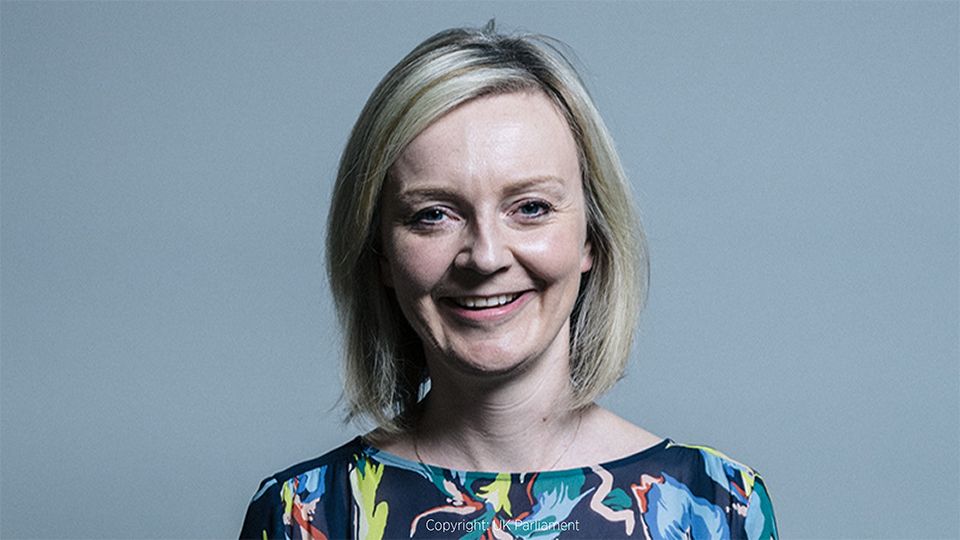Industry commentators appear sceptical of UK prime minister Liz Truss’ recent energy announcements, calling them “too little” and questioning who will shoulder the costs.
The UK government has unveiled plans to cap typical household energy bills at £2,500 for two years to address soaring consumer costs.
But Lewis Shaw, founder of Mansfield-based Shaw Financial Services, said the measures were insufficient: “This is too little and will push millions into fuel poverty.”
Energy suppliers will be compensated for the Energy Price Guarantee but the prime minister (pictured) ruled out a windfall tax on oil and gas company profits to pay for the measures that could cost a total of £150bn.
Tom Gilbey, equity research analyst at Quilter Cheviot, said: “While it is positive that help is being given, it is unclear who is going to have to pay for this bill, which might cost up to £150bn. It appears to be a good deal for energy generators who stand to benefit from this crisis and are able to lock in these higher profits with the British public potentially shouldering the cost.”
Truss, giving details of the energy plan in parliament, said the £2,500 cap, in place from October, will include the removal of the green levy, which currently makes up £150 of annual energy bills.
Businesses are in line for six months of support for energy bills, Truss said, and vulnerable industries will be eligible for more support thereafter.
In a further bid to increase domestic energy supply, the government said it will launch a new oil and gas licensing round as early as next week – with more than 100 new licences expected to result. It has also committed to accelerating nuclear, wind and solar.
Tara Clee, ESG analyst at Hargreaves Lansdown, called rumours of the new oil and gas licences “worrying”.
Another part of the energy plan focused on net zero with the government stating on the BEIS website it would “launch a review to ensure we are meeting our net-zero 2050 target in an economically-efficient way, given the altered economic landscape… it will ensure delivering the target is not placing undue burdens on businesses or consumers.”
Steve Malkin, CEO of Planet Mark, said: “The new prime minister has an opportunity to depoliticise the debate around the causes of the UK’s energy crisis, demonstrating that reducing the cost of living and transitioning to a net-zero economy can go hand in hand.
“Net zero is a genuine solution to, and not a cause of, today’s economic challenges.”
Fracking
The government has also announced it will lift the ban on fracking in a bid to boost energy security.
There has been a moratorium on fracking in the UK since 2019 due to environmental concerns. Developers will now be able to seek permission to drill and extract oil and gas from shale rock, only “where there is local support for it,” according to Truss.
Newly-appointed chancellor and previous business secretary, Kwasi Kwarteng, argued against a return to fracking in a newspaper article earlier this year.
He is not the only one to have expressed concerns over this course of action.
Rhys Schofield, managing director at Belper-based Peak Money, called the use of fracking a “sticking plaster”.
“We know renewables are now the cheapest source of energy so why on earth are we not taking some of the obscene profits from oil and gas production and going all in on building a sustainable future instead of still talking about fracking, which is no more than a short-term sticking plaster?” asked Schofield.
Cabinet reshuffle
The energy plan was the first major policy announcement for Truss after she won the Conservative Party leadership race on Monday. There was upheaval in government positions in the wake of her victory with many Boris Johnson loyalists being removed from cabinet positions and Truss loyalists brought in.
Jacob Rees-Mogg took on the role of business, energy and industrial strategy secretary from Kwasi Kwarteng.
Rees-Mogg was most recently minister for Brexit opportunities and government efficiency. His appointment has concerned climate campaigners who have highlighted his previous claims that “climate alarmism” is responsible for high energy prices and his support for North Sea oil and gas extraction.
Ranil Jayawardena replaces George Eustice as environment secretary. Jayawardena was previously a junior minister at the international trade department.








